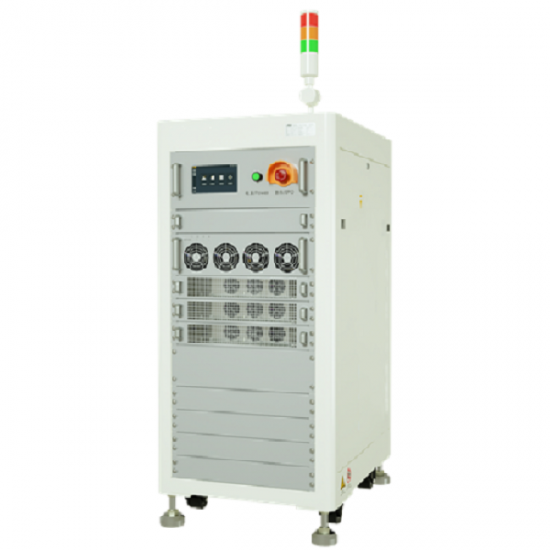Lith Corporation, founded in 1998 by a group of material science doctor from Tsinghua University, has now become the leading manufacturer of battery lab&production equipment. Lith Corporation have production factories in shenzhen and xiamen of China.This allows for the possibility of providing high quality and low-cost precision machines for lab&production equipment,including: roller press, film coater,mixer, high-temperature furnace, glove box,and complete set of equipment for research of rechargeable battery materials. Simple to operate, low cost and commitment to our customers is our priority.
A Temperature Cycle Tester is a critical piece of equipment used to assess the durability and reliability of materials, components, and assemblies under varying temperature conditions. This type of testing is particularly important for products such as batteries, electronics, automotive parts, aerospace components, and other industrial applications where operational environments can fluctuate significantly between hot and cold extremes. By simulating these conditions, manufacturers can ensure that their products will perform reliably over time without failure.
Key Features
1. Temperature Range
These testers offer wide temperature ranges, typically from extreme cold (down to 70°C or lower) to high heat (up to +180°C or higher), allowing for simulation of diverse environmental conditions.
2. Precision Control
High precision in controlling temperature changes with uniformity across the test chamber ensures consistent results. The rate of temperature change can also be precisely controlled, which is crucial for replicating specific environmental stress profiles.
3. Humidity Control (Optional)
Some models include humidity control features, allowing for combined temperature and humidity cycling. This is especially useful for testing corrosion resistance and moisture effects on materials and components.
4. Programmable Control System
Equipped with advanced controllers that allow users to program complex temperature profiles, including ramp rates, soak times, and cycle repetitions. This flexibility supports compliance with various industry standards and custom test requirements.
5. Data Acquisition System
Integrated systems for monitoring and recording key parameters during testing, such as temperature, humidity (if applicable), and any changes in the tested product’s performance. This data is essential for analysis and reporting.
6. Safety Features
Includes safety mechanisms like emergency stop buttons, overtemperature protection, and sometimes remote operation capabilities to ensure operator safety during testing.
7. Versatile Test Space
Available in different sizes to accommodate a variety of test samples, from small electronic components to large automotive assemblies. Adjustable shelving and fixtures may be included to facilitate optimal sample placement.
Battery Testing Machine
Applications
Consumer Electronics: Ensuring devices like smartphones, laptops, and wearables can withstand temperature fluctuations encountered during daily use and transport.
Automotive Industry: Testing vehicle components for durability under extreme temperatures experienced in different climates.
Aerospace: Verifying the performance of aircraft parts under rapid temperature changes encountered at different altitudes.
Energy Storage Systems: Assessing the stability of battery packs under thermal cycling conditions relevant to renewable energy installations.
Regulatory Compliance: Helps manufacturers comply with international standards like IEC, ISO, MILSTD, and others specifying temperature cycling tests for product certification.
Considerations When Choosing a Temperature Cycle Tester
Test Requirements: Ensure the tester meets your specific temperature range, humidity control (if needed), and programmable profile needs.
Sample Size and Type: Select a tester capable of accommodating the size and configuration of your samples.
Budget Constraints: Costs vary based on capacity, features, and brand. Prioritize necessary features over optional ones to stay within budget.
Ease of Use: Look for intuitive interfaces and straightforward maintenance procedures to minimize downtime and training.
Maintenance and Support: Check the availability of spare parts, customer support, and maintenance services from the manufacturer.
Compliance Standards: Verify that the tester complies with relevant industry standards required for your application, ensuring regulatory compliance.
By carefully considering these factors, you can select a Temperature Cycle Tester that not only fits your current testing needs but also supports future growth and compliance requirements. Ensuring the reliability of products through rigorous thermal cycling is essential for enhancing product quality and safety across numerous industries.
Manufacturers specializing in material and product testing solutions often provide Temperature Cycle Testers as part of their offerings. Consulting directly with these manufacturers or suppliers can help find a solution tailored to specific testing requirements and ensure it meets all necessary safety and performance standards. Examples of such manufacturers could include companies known for their comprehensive range of testing equipment, such as ESPEC, Weiss Technik, and Thermo Fisher Scientific, among others.




 Online service
Online service
